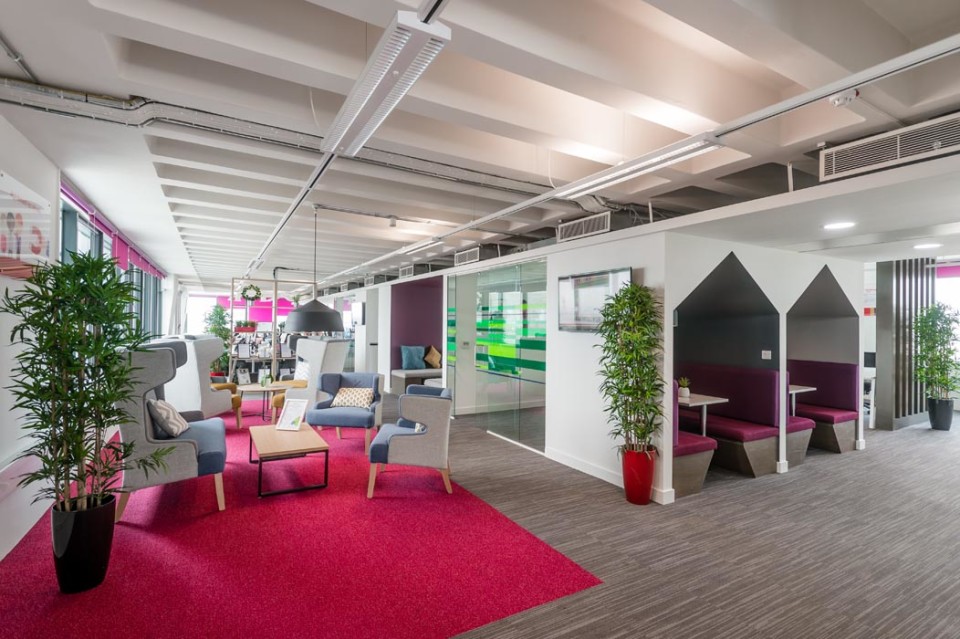Office design: creating spaces for people
By Bruntwood

The world of work has been rapidly changing over the past decade, not only how we work, but also the spaces in which we work. Office buildings are now designed around the people using the space, and how it makes them feel. Office design trends are now based more on the science behind them, rather than the overall ‘look’ of a space.
On average, we spend over a third of our lives at work, so your job and your place of work can have a big impact on your quality of life. With this in mind, companies are designing their workspaces around their employees, and listening to the wants and needs of their people. Everyone has a value within the workplace and the movement currently is towards creating spaces that people want to go to. Here’s what our Design team are expecting to see more of within the workplace:
Biophillic design The hot topic last year, biophilia is continuing to grow in popularity. This is not only due to the connection to nature, which has been proven to make staff feel calm, creative and happy, but also because it makes us feel healthier. From the use of natural materials within our working environments, to the addition of roof terraces on buildings, businesses are creating spaces for their people that allow them to reconnect with nature and improve their wellbeing. “What we expect to see is this approach developing even deeper, with businesses applying “green” to many more of their processes,” says Jayne Baguley, Senior Designer at Bruntwood. “This could be anything from renewable energy, to locally sourced food and drink for its lounge and cafe areas, as we aim to improve the quality of our planet.”
Colour and texture Along with the biophilic influence, there has been an increase in natural finishes and textures used within office design. This comes in many forms, including unlikely combinations of wood, textile, stone and metals. “Texture not only improves the sensory elements within a space but can often help to create a sense of home comfort therefore reinforcing our wellbeing at work,” says Jayne.
With regards to colour, we are seeing the rise of new neutrals in sophisticated muted shades of colours such as lavender and peach. These are paired with strong colour pops of deep clarets, emerald greens and inky blues. Often applied as bold, geometric shapes, this provides what Jayne describes as “a dose of indulgent escapism.”
Blurring the boundaries More and more companies are creating offices which blur the lines between work, social life and home, creating a “home from home” for employees.
It’s been the case for some time now that many businesses are offering more flexiblity for employees when it comes to where they work from on a daily basis. Fixed desks are becoming less popular, as people spend less time in the office, instead working from home, coffee shops and coworking spaces.
Businesses are ever-more seeing the value in creating workplaces which will help them to both attract and retain the best talent. So when choosing to go to the office, the workplace “experience” is ever more prevalent. It is about how the space feels and what it is like to work there. It could be anything from offering the perfect coffee to providing the very latest technology and the tools to do the job in hand. A space should be intuitive and about the people that inhabit them. A space where form can follow function, where spaces are not only defined by walls but by creative alternative solutions.
Stay Connected!
Sign up to our newsletter for the latest news, updates and offers.